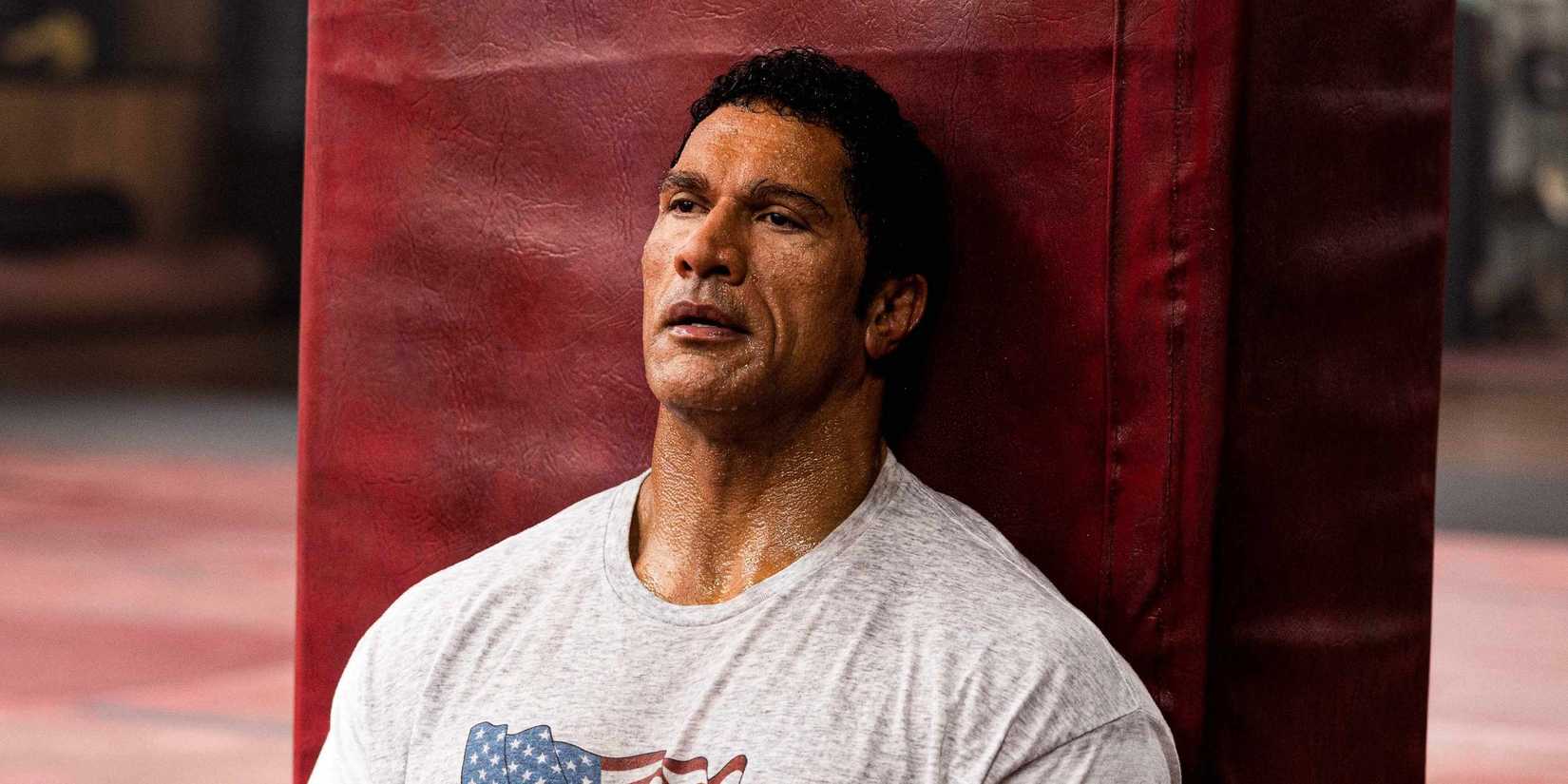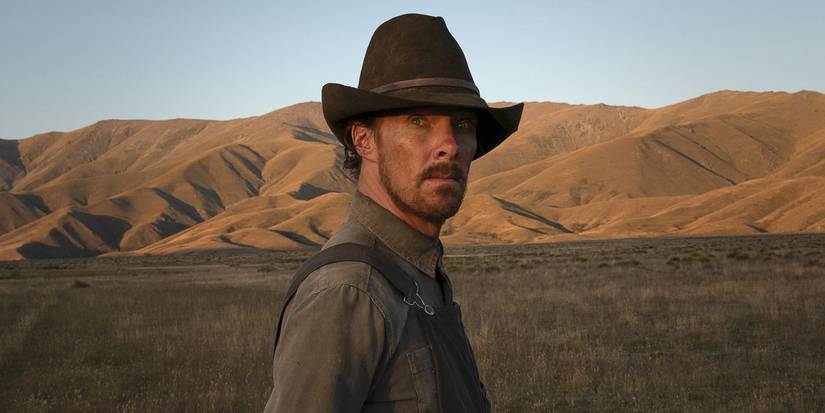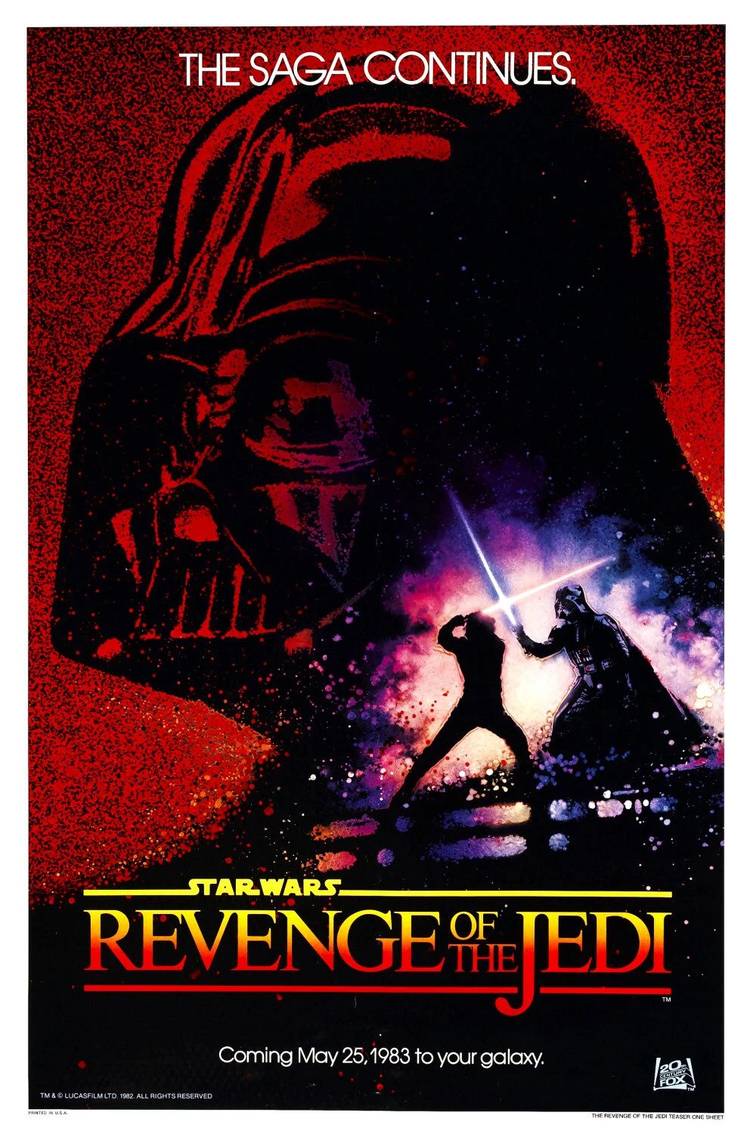The Smashing Machine tells the real-life story of Mark Kerr, one of the pioneering names in Mixed Martial Arts throughout the 1990s. The fighter is played by Dwayne Johnson in the film, and much of The Smashing Machine‘s marketing has drawn focus to the actor’s physical transformation for the role.
Whether it’s the heavy prosthetics, sharp physicality, or combat training, there’s a lot of work that went into turning Dwayne Johnson into Mark Kerr for this film. Many people are even suggesting that Dwayne Johnson deserves an Academy Award for his performance, with this bold “transformation” often serving as the basis of this claim.
The physical similarities between Johnson and Kerr are undeniably impressive, but I can’t help feeling that The Smashing Machine‘s focus on historical accuracy takes something away from its story.
Dwayne Johnson’s Smashing Machine Transformation Feels Unnecessary
There’s no denying that Dwayne Johnson completely disappears into the role in The Smashing Machine – he’s vulnerable, he’s unfamiliar, and he looks completely different. This is a source of praise for many — and it’s definitely an enormous achievement for the film’s makeup artists and prosthetics team — but it weakens some of the film’s most pressing subtext.
When it was first announced that Johnson would be playing Mark Kerr, MMA fans were understandably thrilled. Seeing one of the sport’s most admired pioneers portrayed by an equally beloved wrestler-turned-actor was an exciting prospect – but The Smashing Machine strives so hard to create distance between Johnson and Kerr instead of embracing their similarities.
Casting a real-life wrestler as Mark Kerr gave The Smashing Machine a perfect opportunity to blur the line between actor and character, turning this into more than just Kerr’s story and more of a holistic look at the sport and its impact on the athletes. Instead, it feels like The Smashing Machine just wants to make that line even clearer.
Admittedly, this metatextual storytelling could have been a little distracting to those viewers who just want a regular, respectful biopic about Kerr’s life – but The Smashing Machine‘s reviews have frequently cited the film’s familiarity as a key weakness. Blurring this actor/character line more freely would have been a much more ambitious approach.
The Smashing Machine could have given itself a fascinating, more self-aware dimension by subtly drawing comparisons between Johnson’s own career and the character he’s portraying, but it’s hard to read the film in this way when Johnson disappears so completely into the role.
The Smashing Machine Represents A Larger Problem With Real-Life Biopics
Unfortunately, The Smashing Machine isn’t the only historical biopic that this criticism applies to. There’s an ongoing trend within the genre in recent years to make the most realistic, authentic version of the story possible, casting actors who look the part and telling the story exactly as it happened.
This can be a great way of honoring a person’s legacy in film, but the fact remains that these by-the-book life stories are often much less interesting than films that may be less accurate but take bolder swings in their storytelling. Films like I’m Not There, Spencer, and Better Man come to mind – perhaps not accurate, but infinitely more interesting.
In a time when biopics are gradually becoming increasingly more popular and successful, it’s even more important that we avoid the kind of stylistic hegemony that this genre can cultivate. There are some brilliant biopics out there, and even some brilliant biopics that aren’t necessarily ambitious, but it’s becoming more of a rarity.
The Smashing Machine admittedly does a good job of giving subtext to Mark Kerr’s story and avoiding the kind of bland, stale storytelling that audiences are coming to ᴀssociate with the biopic genre. There’s some genuine in-depth commentary on success, happiness, and self-destructive behavior that elevates Kerr’s story above most.
The way The Smashing Machine doesn’t just recount Kerr’s life story, but rather uses it as a lens through which to examine some greater themes, is a really solid foundation for the film. It’s just frustrating to imagine how much further Benny Safdie could have gone if the screenplay had been less concerned with hitting all the facts.
There’s also something to be said about the way audiences immediately knew, before even seeing the first trailers for The Smashing Machine, that it would spark an Oscars campaign for the actor. That’s because these kinds of showy, transformative performances tend to show up at the Academy Awards all the time, and that’s affected the way these movies are made.
Whether it’s Renee Zellweger in Judy, Rami Malek in Bohemian Rhapsody, or Gary Oldman in Darkest Hour, the Oscars are undeniably weighted towards biopic performances. This has created the illusion that audiences are more concerned with transformative performances and historical accuracy than fresh, engaging stories, when that couldn’t be further from the truth.
This may seem like a harmless trend at first, but the fact remains that these loud, transformative performances can sometimes distract from the more restrained, nuanced performances when it comes to awards recognition. It’s disheartening to see so many excellent performances consistently put to the side to make room for biopic roles simply because they’re more recognizable







